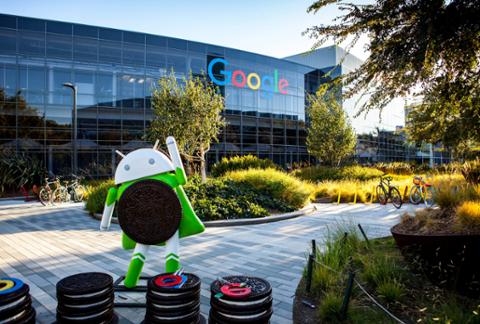Well, it happened: Google finally ran out of cutesy dessert code-names for each new Android build.
The next version of Android will simply be known as “Android 10.” And honestly, that’s something of a relief. If it had stayed on the dessert course (pun intended), Google would have eventually been forced to come up with well-known sweets to pair with “X,” “Y,” and “Z.” Imagine a consumer new to Android, trying to mentally juggle this increasingly complex buffet (“So Pie… is better than KitKat?”).
(Before it was “10,” Android’s next version was codenamed “Q,” and even that one would have been a real toughie to convert into a memorable dessert. Queen of Puddings? Quindim? Quesito? None of those exactly roll off the tongue.)
Going forward, we presume that Google will follow a nice, orderly progression of numbers, but we should never underestimate this company’s ability to get randomly weird over something straightforward. Even now, some Google marketing genius might be saying: “Every other company counts up with each new version. Why don’t we show how wild and cool we are by counting down to Android 1? And we can do it by twos.”
Note to Google: disregard that. It’s a terrible idea. We’re serious. Don’t do it!
As Google begins this transition to an orderly naming scheme, it’s actually worth looking at which desserts/versions currently rule the overall Android ecosystem. The latest version, Pie (9.0), owns 10.4 percent of the overall market, trailing its predecessor, Oreo, which has a combined 28.3 percent between its two versions (8.0 and 8.1). Some very old versions of Android continue to enjoy significant market-share, including KitKat (4.4), which has 6.9 percent of the market, and Lollipop (5.0 and 5.1), which has 14.5 percent. Take a look at this handy chart:

Because Google relies on manufacturing partners to create the majority of Android phones on the market (as opposed to Apple, which controls both the software and the hardware sides of its phone business), it’s always had to wrestle with the dangers of fragmentation, with millions of phones running antiquated versions of Android with no hope for an update. The introduction of a number-based naming scheme won’t change that, but at least it’ll be less confusing for users than a system based on dessert.



